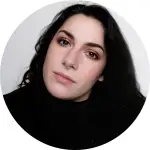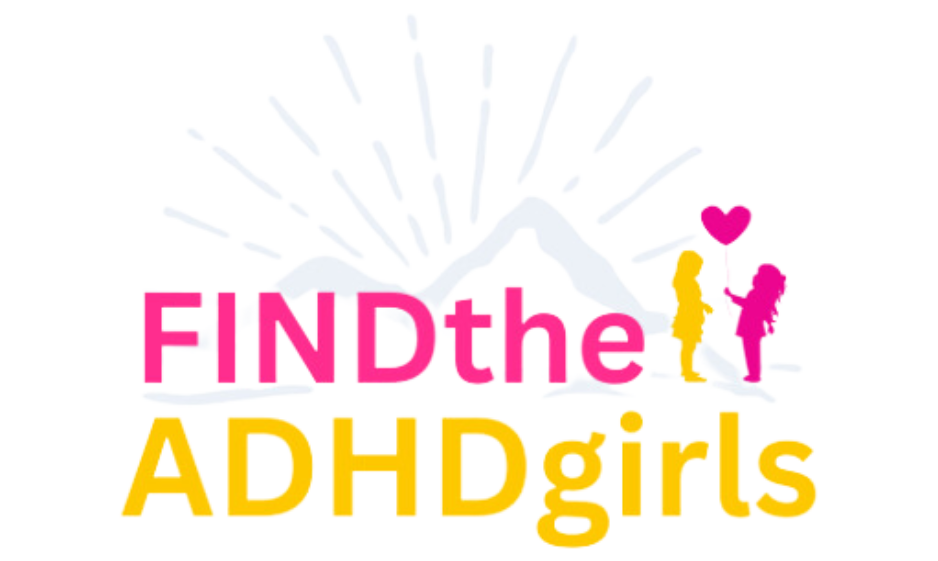Two years ago, I received a diagnosis that helped me make sense of my life in a way I didn’t know was possible. Like many cases of late ADHD diagnosis in women, my symptoms had long been misinterpreted. At age 14, I was diagnosed with chronic depression and anxiety—again and again. I was prescribed nearly every SSRI under the sun, but none of them helped. In fact, they often made me feel worse. Eventually, I gave up on getting help and just accepted that how I felt was simply my reality.
I always felt like an outsider looking in at my own life. My parents called me ‘Oblivia’, because I was always daydreaming, and would often get lost in stores and crowded places because I got distracted by something instead of following behind my mom. I would realize she was gone long after, and many times, a store clerk had to help me find her. I even had nightmares constantly of getting distracted and lost. Trust me, my mom did her best, sometimes she made me sit in the cart when she was in a hurry and didn’t have the time to search for me. There were certain things that were abnormal but passed off as quirks. I remember being in middle school and my mom picking up a ‘learn how to read time’ toy for toddlers, because at age 13, I couldn’t read an analogue clock. It was a mystery.. I understood the concept of clocks, I just couldn’t make sense out of it, no matter how hard I tried, and was embarrassed by it. It wasn’t until later that I learned that more than 50% of ADHD diagnoses are paired with learning disabilities and processing delays — I still struggle with reading analog clocks, quick math problems, anything with numbers really.
Unlike my little brother, who was diagnosed with ADHD and multiple processing disorders by the time he was in 1st grade, I was not disruptive in school. I flew under the radar. The few times I did get in trouble, it was because I defiantly refused to put a book away that I was reading—usually during a math lesson. While my brother lost himself for hours in video games, I did the same in books. One was seen as meritable, while the other was viewed as unhealthy, so again, I slipped through unnoticed. I always got excellent grades, turned in my assignments, and rarely caused trouble. But like many cases of late ADHD diagnosis in women, the real struggles began when I left school and had to navigate adult life on my own.
I went to Pratt Institute for college, and an unstructured but intense education in design was perfect for me. When I left and had to support myself in an expensive city, I got my first office job, and where my mental health really began to slip. Getting there on time every day was the biggest challenge of my life, and no matter what I did, I couldn’t seem to get it right. I would leave all my stuff by the door the previous night, set my alarms earlier, have timers going off every 5 minutes, and nothing worked. 8 hours felt like 15. I couldn’t sit still. I would get up and walk around every ten minutes, constantly have 10 browser windows open with reddit threads and weird wikipedia articles instead of work. For every 2 minutes of work I did, I would derail focus for 10. I couldn’t cope with my life anymore. I felt so disorganized and out of control and was afraid of being fired every single day.
In 2017, things reached a breaking point. I got a new job, hoping that my problems would be better, but they just got worse. I was constantly in ‘performance review’ meetings where my boss would point out tiny mistakes I made with dates and names on projects, my tardiness, and my inability to get things done. He would verbally ask me to complete tasks and I would forget if I didn’t write it down fast enough. My depression and anxiety became so bad, I finally decided to seek professional help.
 The psychiatrist I went to see was one of the first that really seemed to care. He asked me hard questions, and I answered them honestly. When he told me ‘I believe you have ADHD and you were misdiagnosed your entire life. Taking SSRIs worsens the symptoms of ADHD’, I looked at him like he had ten heads. Still, I trusted him and went to get a professional evaluation and diagnosis. Sure enough, I had ADHD. Like many cases of late ADHD diagnosis in women, the signs had been there all along, just overlooked or misread. This began a new life for me. I saw everything with a different perspective, and the same awesome psychiatrist that set me on this path gave me a list of books to read to help understand my diagnosis and how to handle it.
The psychiatrist I went to see was one of the first that really seemed to care. He asked me hard questions, and I answered them honestly. When he told me ‘I believe you have ADHD and you were misdiagnosed your entire life. Taking SSRIs worsens the symptoms of ADHD’, I looked at him like he had ten heads. Still, I trusted him and went to get a professional evaluation and diagnosis. Sure enough, I had ADHD. Like many cases of late ADHD diagnosis in women, the signs had been there all along, just overlooked or misread. This began a new life for me. I saw everything with a different perspective, and the same awesome psychiatrist that set me on this path gave me a list of books to read to help understand my diagnosis and how to handle it.
2 years later, and my life has taken a 180 for the best. I no longer beat myself up mercilessly for my mistakes. I worked with a therapist to figure out how to cope with problems and realized that the root of my depression and anxiety came from the stress of undiagnosed ADHD. My story isn’t unique—late ADHD diagnosis in women is far more common than most people realize. I now own my own business and work as a creative freelancer, because after years of struggling, I realized being micromanaged in an office setting was never going to work for me. I still struggle, of course, who doesn’t, but now I don’t have to blame myself for everything.
Recent research has found that 75% of girls and women go undiagnosed with ADHD. That’s because the visible traits of the disorder, like squirming and having outbursts, typically show in boys more. The two sides of the disorder — the hyperactive and the inattentive, have not been defined until recent years. Sometimes I think about what my life would be like had I been diagnosed as a kid, or how many girls there are struggling and feeling like there is something wrong with them for things they can’t control. My hope is that parents and educators begin to learn more about this ‘disorder’ and try and focus on the positive sides — the enthusiasm and passion for things we love to do, our humor and quick wittedness, our innovation and ability to fearlessly take risks. Not only have I learned to accept this diagnosis, but I also now appreciate it for all it’s given me in life.
About the Author

Liv Pasquarelli
Liv Pasquarelli is a tech researcher and writer with deep ADHD insight, exploring AI, blockchain, and how neurodivergent minds shape the future of innovation.
Share via:

